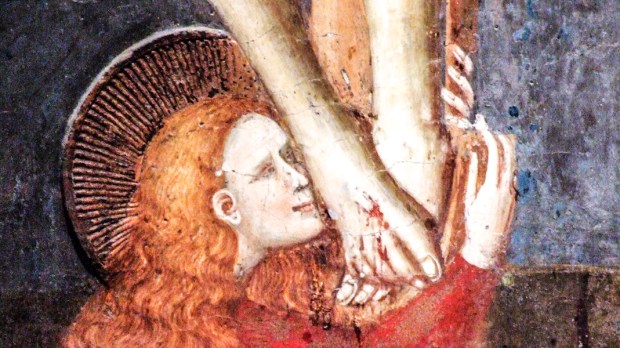Lenten Campaign 2025
This content is free of charge, as are all our articles.
Support us with a donation that is tax-deductible and enable us to continue to reach millions of readers.
One Saturday in early June, I met a friend, a Franciscan friar, for coffee at a favorite local coffee house. During our conversation we talked about our vocations, our communities, families, prayer, and even politics. At one point, I asked him what his favorite story from the life of Jesus was. His answer surprised me a bit. I was expecting something stereotypically Franciscan about sparrows and “lilies of the field” or Jesus caring for the poor. But, as it turns out, his favorite event in the life of Jesus is the story of the woman caught in adultery (John 7:53-8:11).
He said the story was so meaningful for him because he liked to envision the joy and peace that Jesus brought to a woman whom he could justifiably have condemned, thus defying both expectations and conventions. But in the end it was the experience of the woman herself that brought him back to this story time and again.
And then, he mentioned Mary Magdalene.
Many of us know, or think we know, who Mary Magdalene is; for my friend, she is still very much the adulteress of our traditions, even as the Church has moved away from that understanding. Clearly, Mary Magdalene was a courageous and faithful woman — she was obviously an important presence in the life of Jesus — and she is certainly key player in the events on that first Easter.
But my friend talked about Mary as we originally thought of her. He talked about the gratitude that Mary would obviously have felt for the gift of healing and wholeness she had received. After all, this is the woman who, according to the gospels of Mark and Luke, Jesus had “cleansed” of “seven demons.” Her encounter with Jesus and experience of his healing power transformed her life and not only did she become one of his most devoted followers, she bravely stood beneath the cross with Jesus’ mother, the beloved disciple, and those other faithful women.
In his General Audience on May 17, Pope Francis reflected on the witness of Mary Magdalene, calling her “the apostle of the new and greatest hope.” Mary was the woman who, against all odds, became the “Apostle to the Apostles,” testifying that the Lord had indeed risen and was alive. Her life was changed because she had “seen the Lord,” the Pope observed.
As I left the coffee shop that day, the conversation stayed with me. Not only did I think about how my own relationship with Jesus had changed my life in so many unexpected ways, but also about those faith-filled women and men whom God has placed in my life who have been witnesses of hope for me.
These “Marys” have often come into my life when I’ve floundered or lost sight of what really matters. And, like the skeptical apostles that first Easter, it’s sometimes taken me a while to really recognize the truth they’re sharing with me, or how they’re challenging me to see beyond what’s going on in my life. But, there they are. Friends, members of my religious community, parishioners, and even strangers somehow reminding me that I’m lovable and loved and that God is alive and at work, even in my life.
For those of us who are “professional” ministers in the Church, it’s easy to become distracted with the busy-ness of what we do, and to forget that important truth, or other truths, about humility, and trust, and love. When one of these prophetic people come into my life, I’m not always ready to hear what they have to say. Ultimately, though, I’m better for having listened and for being open to their faith, hope, and love. These are the graced encounters that help me to be a better religious brother, a better Christian, and, simply, a better person.
The First Letter of Peter reminds us to “always be ready to give an explanation to anyone who asks you for a reason for your hope” (3:15). This was Mary Magdalene’s mission. She journeyed with and supported Jesus in his ministry and she didn’t hesitate to share with the Eleven what she experienced in the garden that morning when she heard the Risen Lord call her name. Her relationship with Jesus changed her life and she didn’t hesitate to share her Good News.
When all is said is done, our story isn’t all that different from hers. Each of us, regardless of our personal history—or our personal demons—has had moments of encounter with the Risen Lord who is at work in the lives and stories of others, especially in those people we love who know our name and who have the power to call us out of our darkness, our doubts, and even our selves by the witness of their hope.
My conversation in that coffee shop is just one brief interlude with a friend who has been a Mary Magdalene for me and, I hope, I’ve been that for him. My friar-friend’s own experiences of forgiveness and grace have empowered him to become a witness of hope and his hope is a blessing for me. In the end, with Mary Magdalene as a guide and example, this is what each of us is called to do and to be.

